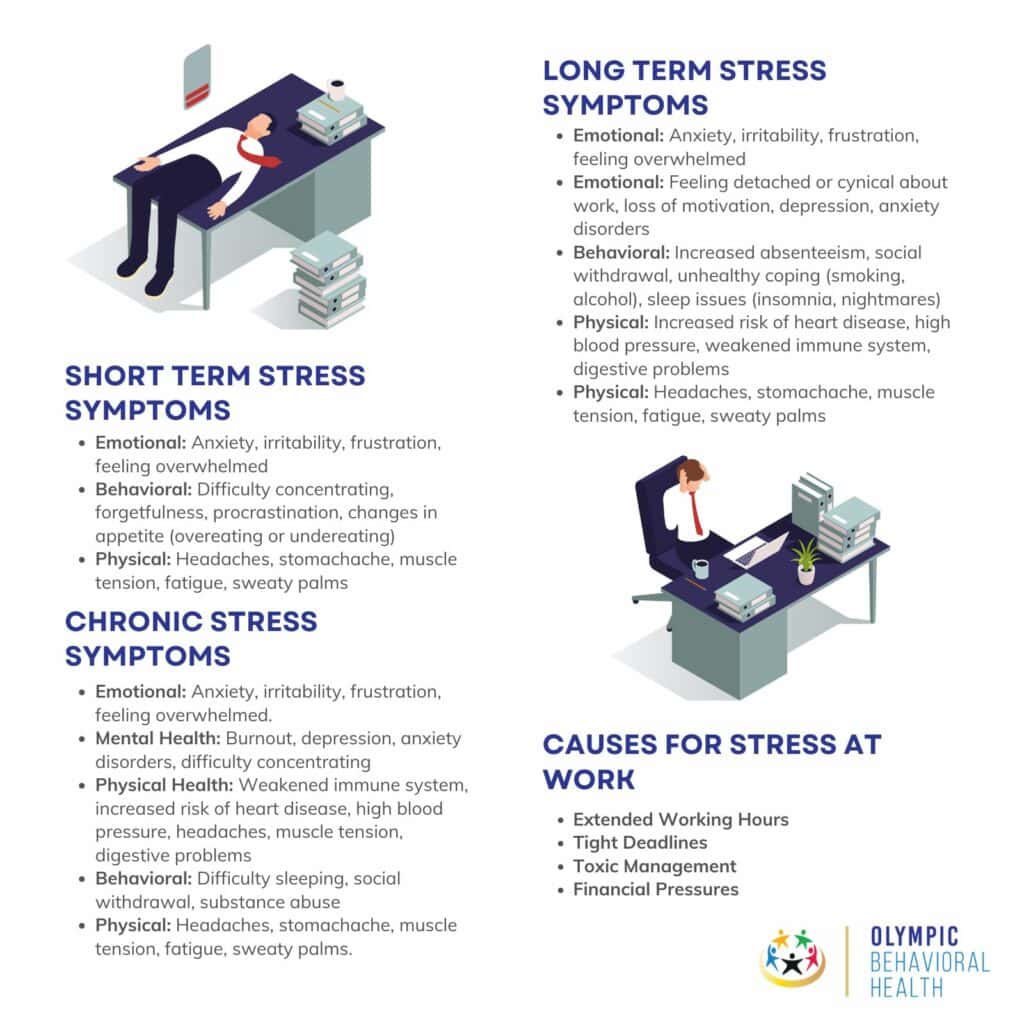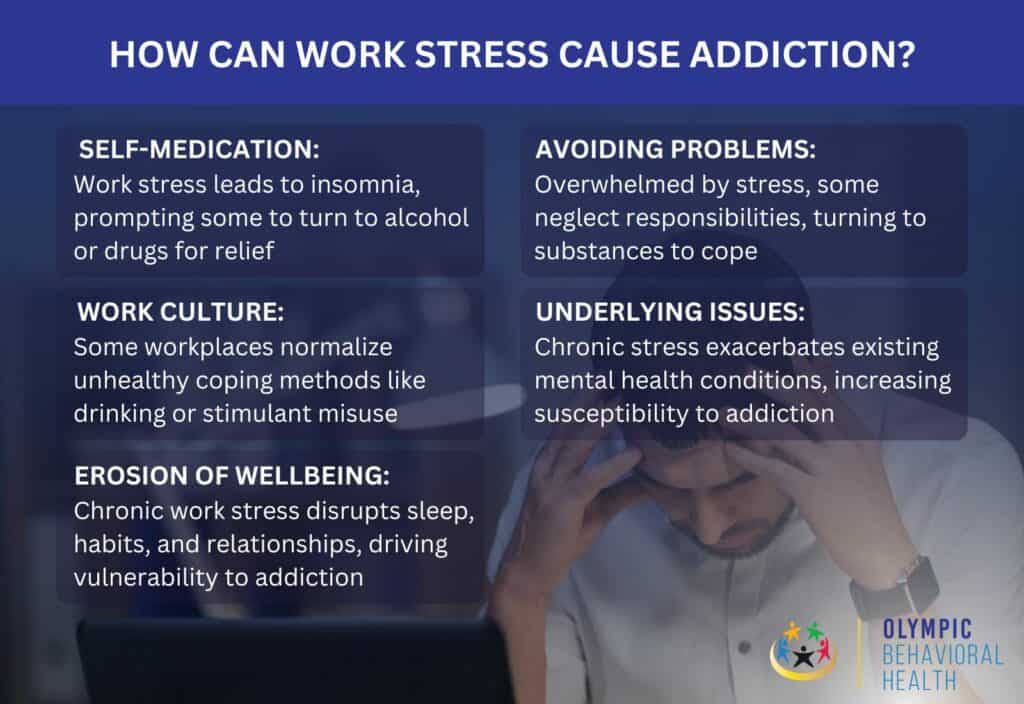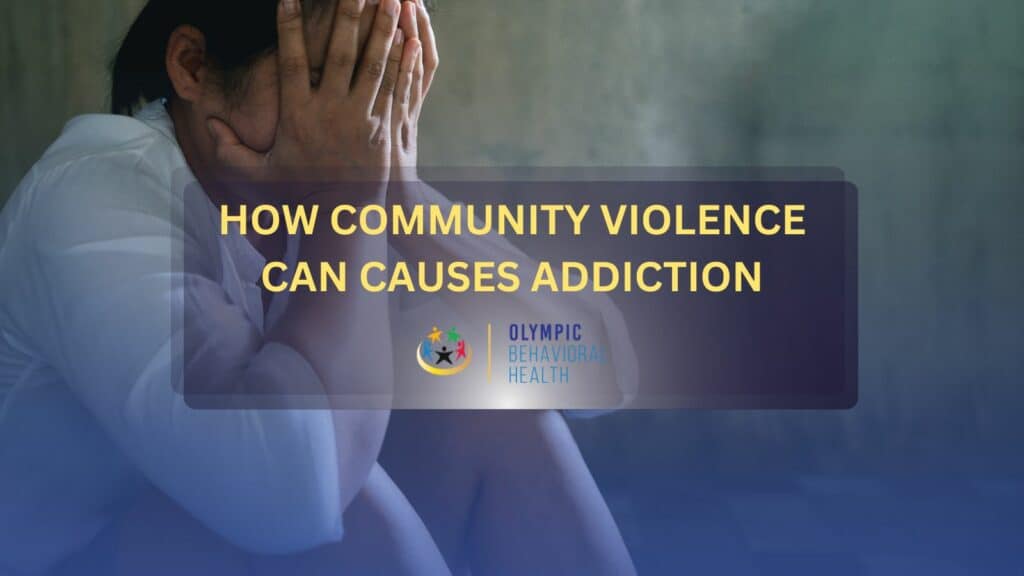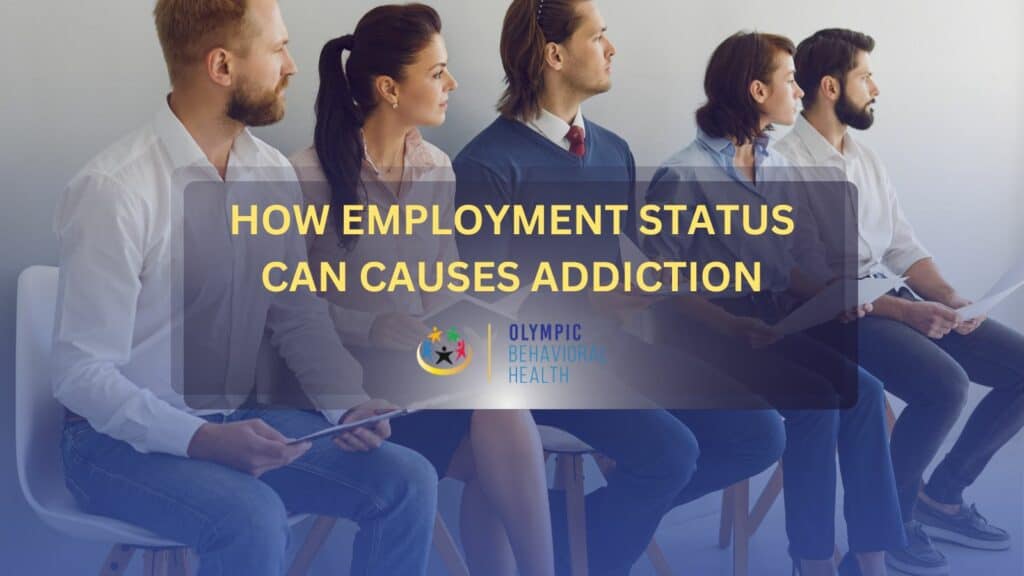Work stress and drug addiction are two intertwined processes with one being able to cause the other. Unfortunately, in todays busy work, it is very easy to get involved in either.
Chronic work stress can manifest in various ways.You might experience physical symptoms like headaches, stomachaches, and trouble sleeping. Mentally, you could feel overwhelmed, anxious, or even depressed.
Work stress can also affect your behavior, leading to irritability, difficulty concentrating, and neglecting personal responsibilities. If you’re using drugs to cope with these symptoms, it could be a sign of a developing addiction.
The constant pressure of deadlines, heavy workloads, or a toxic work environment can all contribute to stressful work. People who feel unsupported by their managers or have little control over their tasks are especially vulnerable.
To escape these negative feelings, some individuals turn to drugs, seeking a temporary sense of relief or a boost in energy. However, this coping mechanism backfires, leading to a dangerous cycle of addiction.
What is Stress?
The World Health Organization (WHO) defines stress as ‘a state of mental or physical strain caused by demanding certain circumstances, which can be chronic or episodic. The response to stress results in physiological and psychological changes that can have negative consequences for health.”
Stress is the body’s response to pressure, a state of mental or physical tension caused by demanding, certain circumstances. Stress can be positive, keeping us alert and motivated, but when it becomes chronic, it can lead to health problems including mental health disorders and addiction.
There are many things that can cause stress, including work deadlines, financial problems, relationship difficulties, and health problems.

Symptoms of Stressful Work
A stressful work environment can negatively impact your physical and mental wellbeing. According to the American Psychiatric Association, there are 3 types of stress: short term or acute stress, long term or episodic stress and chronic pain. Each type manifests via slightly differnet symptoms.
Short Term Stress Symptoms
Short-term or acute stress is the most common type of stress and is often referred to as “fight-or-flight” stress. It is a short-term physiological response to a perceived threat or challenge.
When you experience acute stress, your body releases hormones like adrenaline and cortisol, which prepare you to deal with the threat. This can cause physical symptoms like increased heart rate, sweating, and muscle tension.
Acute stress is usually harmless and goes away once the threat is over. Below are symptoms you can typically experinece in response to immediate work stress.
- Emotional: Anxiety, irritability, frustration, feeling overwhelmed.
- Behavioral: Difficulty concentrating, forgetfulness, procrastination, changes in appetite (overeating or undereating)
- Physical: Headaches, stomachache, muscle tension, fatigue, sweaty palms.
These short-term symptoms are your body’s way of signaling that you need to address the stressor.
Long Term Stress Symptoms
Long term or episodic stress falls somewhere between acute and chronic stress. It is characterized by frequent episodes of acute stress, often due to recurring demands or challenges. For example, if you have a job with a lot of deadlines, you may experience episodic acute stress regularly. If work-related stress persists, you may experience a continuation of short-term symptoms alongside more serious issues.
- Emotional: Feeling detached or cynical about work, loss of motivation, depression, anxiety disorders.
- Behavioral: Increased absenteeism, withdrawal from social activities, increased reliance on unhealthy coping mechanisms (smoking, alcohol), difficulty sleeping (insomnia or nightmares)
- Physical: Increased risk of heart disease, high blood pressure, weakened immune system, digestive problems
Chronic Stress Symptoms
This type of stress is continuous and can be caused by ongoing problems in your work, personal life, or relationships. Chronic stress can hurt your physical and mental health, leading to problems such as headaches, high blood pressure, anxiety, and depression. Chronic stress is the prolonged activation of the stress response system. When work-related stress becomes chronic, it can lead to a number of health problems.
- Mental Health: Burnout, depression, anxiety disorders, difficulty concentrating.
- Physical Health: Weakened immune system, increased risk of heart disease, high blood pressure, headaches, muscle tension, digestive problems.
- Behavioral: Difficulty sleeping, social withdrawal, substance abuse ([Mayo Clinic chronic stress])
Chronic stress can have a devastating impact on your health and well-being. It’s important to seek professional help if you suspect you are experiencing chronic stress.
Causes for Stress at Work
The specific cause of work stress can vary significantly depending on the job itself. For instance, doctors frequently face high-pressure situations where their patients’ well-being hinges on their decisions, leading to heightened stress levels. However, there are many general factors that contribute to workplace stress, impacting a wide range of professions.
- Extended Working Hours: The modern workplace often demands long hours, with employees putting in more time than ever before. This can lead to practices like working through lunch breaks or skipping meals altogether, behaviors that exacerbate work anxiety.
- Tight Deadlines: The fast-paced nature of today’s business world often places pressure on workers to meet unrealistic deadlines. This constant feeling of being rushed can lead to feelings of being overwhelmed and stressed.
- Toxic Management: A toxic boss can create a detrimental work environment. Such an environment is often characterized by fear, uncertainty, and doubt (FUD), which can significantly impact employee well-being. Working under a toxic leader can lead to a variety of health problems, including difficulty sleeping, gastrointestinal issues, and an increased risk of cardiovascular disease. Additionally, toxic bosses can erode morale and create a hostile work environment that breeds further stress.
- Financial Pressures: The pressure to provide for a family financially can be a significant source of stress for many workers. This financial strain can contribute to stress and potentially lead to stress-related disorders, such as acute stress disorder.
How Stress and Burnout are related
Stress and burnout are closely linked, but they’re not the same thing. Stress can be said to be the stimuli that culminates in burnout.
Like we earlier mentioned, stress is the body’s response to a challenge or demand. It’s a natural reaction that helps us cope with difficult situations. In small doses, stress can even be beneficial, giving us the focus and energy to perform well under pressure.
Burnout on the other hand is occurs when stress becomes chronic and unrelenting. Burnout is a state of emotional, physical, and mental exhaustion caused by excessive and prolonged stress. It’s like the body and mind giving up after being overloaded for too long.
According to the World Health Organization (WHO), burnout is a ‘syndrome conceptualized as resulting from chronic workplace stress that has not been successfully managed. It is characterized by three dimensions:
- Feelings of energy depletion or exhaustion
- Increased mental distance from one’s job, or feelings of negativism or cynicism related to one’s job
- Reduced professional efficacy (feeling less effective at work)
It’s important to note that burnout is specifically defined as an occupational phenomenon, meaning it relates to work stress.
Key Differences
While stress and burnout are related, there are some key differences:
- Intensity: Stress is generally less intense and shorter-lived than burnout.
- Motivation: People experiencing stress might still feel motivated to achieve goals. With burnout, motivation dwindles significantly.
- Hopefulness: When stressed, you usually believe the situation can improve. Burnout can feel hopeless and inescapable.
Understanding this connection is crucial for preventing burnout. By effectively managing stress and prioritizing well-being, you can avoid reaching the point of exhaustion.
How Does Work Stress Lead Burnout?
Stress and burnout are like two stations on a long train ride. Stress is the initial departure point, and burnout is the unfortunate destination if the journey isn’t managed effectively. Let’s delve deeper into the specific stops along this path.
- Honeymoon Phase: This initial stage is often characterized by enthusiasm and a sense of challenge. You are excited about a new job, a personal project, or taking on increased responsibility. This initial stress can be motivating and drive productivity.
- Onset of Stress: As demands accumulate and deadlines loom, the initial excitement starts to wane. You begin to experience increased workload, longer hours, or interpersonal conflicts. Frustration and irritability begin to creep in, impacting sleep and concentration.
- Chronic Stress: If the stress from stage two isn’t addressed, it becomes chronic. This is where the body starts to struggle to cope. Physical symptoms like headaches, muscle tension, and digestive issues might arise. You begin to withdraw from social activities and experience difficulty focusing or making decisions.
- Emotional Exhaustion: At this point, the emotional reserves are depleted. Feelings of cynicism, detachment, and apathy become prominent. You begin to lose interest in activities you once enjoyed and feel a sense of emotional numbness.
- Depersonalization: Detachment extends beyond emotions in this stage. You start to distance yourself from your work or colleagues. Cynicism increases, and you become critical or negative towards your job or even yourself.
- Reduced Sense of Accomplishment: Burnout’s grip tightens, and feelings of inadequacy and failure take hold. Even small tasks feel overwhelming, and a sense of ineffectiveness dominates. This can lead to a decline in performance and a withdrawal from responsibilities.
Burnout is the culmination of this prolonged and unmanaged stress response. It’s a state of complete physical, emotional, and mental exhaustion. By understanding these progressive stages, you can identify early warning signs of stress and take proactive steps to prevent burnout.

How Can Work Stress cause Addiction?
Chronic work stress can feel relentless, leaving you drained and desperate for an escape. Unfortunately, that escape hatch can sometimes lead straight to addiction. Here’s how work stress can become a trigger for substance abuse.
- Self-Medication: Work stress affects the emotional and physical well being of an individual. A 2021 research paper by Tomaso CC, Johnson AB and Nelson TD titled ‘The effect of sleep deprivation and restriction on mood, emotion, and emotion regulation: three meta-analyses in one’ shows that chroince work stress is a know cause of insomnia in many people.
This and other health issues arising from stress often results in an overwhelming feeling. When this happens, some people turn to substances like alcohol or drugs to cope. These substances offer a temporary sense of relief, numbing negative emotions and anxieties. However, this “relief” is fleeting, and dependence can quickly develop.
- Work Culture: Some workplaces have a culture that normalizes or even encourages unhealthy coping mechanisms. This could involve after-work drinks to unwind, pressure to be “always on,” or even the misuse of prescription stimulants to improve focus and productivity. In such environments, substance abuse can become a way to fit in or keep up.
- Erosion of Wellbeing: Constant work stress can wreak havoc on your overall well-being. Sleep suffers, healthy habits fall by the wayside, and relationships become strained. This vulnerability makes people more susceptible to addiction as they seek ways to feel better, even momentarily.
- Avoiding Problems: Work stress can be overwhelming, leading some to avoid dealing with problems altogether. This avoidance often extends to neglecting responsibilities and personal health. Substances then become a way to numb the guilt and anxiety associated with these neglected areas.
- Underlying Issues: While work stress can be a major trigger, it’s important to remember it might not be the sole cause. Some people already have underlying mental health conditions like anxiety or depression that make them more vulnerable to addiction when faced with chronic stress.
Remember, addiction is a complex issue with no single cause. However, work stress can be a significant contributing factor. Recognizing the connection is crucial for both individuals and workplaces.
How can you prevent developing a drug addiction because of Work Stress?
Chronic work stress is among the most powerful triggers for drug addiction. However, this does not imply that everyone undergoing work stress will develop addiction. Here are some strategies you can employ to prevent that from happening.
Healthy Coping Mechanisms
- Stress Management Techniques: Learn and practice relaxation techniques like mindfulness meditation, deep breathing exercises, or progressive muscle relaxation. These techniques can help you unwind after work and reduce overall stress levels.
- Physical Activity: Mikkelsen K, Stojanovska L et al in their 2017 work ‘Exercise and mental health’ showed that regular exercise is a fantastic stress reliever. This process happens through many ways including regulation of cortisol a popular stress hormone. Aim for at least 30 minutes of moderate-intensity exercise most days of the week.
- Healthy Habits: Prioritize good sleep hygiene, eat a balanced diet, and limit alcohol and caffeine intake. These habits promote overall well-being and resilience against stress.
Boundaries and Self-Care
- Set Boundaries: Learn to say no to extra work, establish clear boundaries between work and personal life, and resist the urge to check work emails or messages outside of work hours. Disconnecting allows your mind and body to truly relax.
- Disconnect to Recharge: Schedule time for activities you enjoy that help you de-stress and recharge. This could be spending time with loved ones, pursuing hobbies, or simply relaxing with a good book.
- Seek Support: Don’t bottle up your stress. Talk to a trusted friend, family member, therapist, or counselor. Having a support system can be invaluable in managing stress and preventing unhealthy coping mechanisms.
Addressing the Source
- Identify Stressors: Pinpoint the specific aspects of your work that are causing you the most stress. Is it your workload, long hours, lack of control, or office politics? Once you identify the root cause, you can start to explore solutions.
- Communicate with Your Employer: If your workload is unmanageable or the work environment is toxic, consider having a conversation with your manager about adjustments or support you need. Explore options like flexible work arrangements, delegation, or seeking resources within the company to address stress factors.
- Consider a Change: If the situation at your current job is chronically stressful and feels unchangeable, consider exploring other job opportunities that offer a better work-life balance and a more positive work environment.
Remember: You are not alone. Work stress is a common issue, but it doesn’t have to lead to addiction. By prioritizing healthy coping mechanisms, setting boundaries, and addressing the source of your stress, you can build resilience and protect yourself from unhealthy choices.
What other potential causes of addiction are there?
Addiction is a complex disease with a multitude of contributing factors. Here are some other potential causes beyond work stress.
Biological Factors
- Genetics: Research shows that genetics play a significant role in addiction vulnerability. If you have a family history of substance abuse, you may be more at risk.
- Brain Chemistry: Differences in brain chemistry, particularly in the reward system, can make some people more susceptible to addiction.
- Mental Health Conditions: Co-occurring mental health disorders like anxiety, depression, or PTSD can increase the risk of addiction as people may self-medicate to cope with difficult emotions.
Social and Environmental Factors
- Peer Pressure: Surrounding yourself with people who use substances can significantly increase your risk of using them as well.
- Socioeconomic Disadvantage: Poverty, lack of opportunity, and exposure to violence can create an environment where substance abuse seems like a way to escape.
- Early Exposure to Drugs: Early experimentation with drugs, especially during adolescence, can increase the risk of developing addiction later in life.
- Trauma: Experiencing physical or emotional abuse or neglect can make individuals more vulnerable to addiction as a coping mechanism.
Remember, addiction is rarely caused by a single factor. It’s usually a combination of these biological, social, and environmental influences that contribute to the development of the disease.
Can service in the military cause addiction?
Yes, serving in the military can potentially lead to addiction. The combination of high-stress environments, exposure to trauma, and easy access to drugs or alcohol can contribute to the development of addiction among soldiers.
Additionally, the culture of using alcohol and drugs to cope with stress in the military can also contribute to addiction.
Can trauma exposure cause addiction?
Yes, trauma exposure can be a major factor in the development of addiction. When individuals experience significant stress or trauma in their work, such as constant pressure, overwhelming responsibilities, or workplace conflict, they may turn to addictive substances or behaviors as a coping mechanism.
This can also be seen in cases of post-traumatic stress disorder (PTSD), where individuals may use substances to self-medicate and alleviate their symptoms. Additionally, the exposure to traumatic events at work can lead to an increased risk of developing mental health disorders, which in turn can contribute to the development of addiction.
Help needed with a Addiction? Come to our Treatment Centers in West Palm Beach Florida, we can help you!
If you or a loved one is struggling with addiction, seeking help from a professional treatment center is crucial. Our addiction Treatment Centers in West Palm Beach, Florida offer a comprehensive approach to treating addiction, including therapy, medication management, and support groups.
Seeking treatment is the first step towards recovery and we are here to support you every step of the way.

Share This Post



